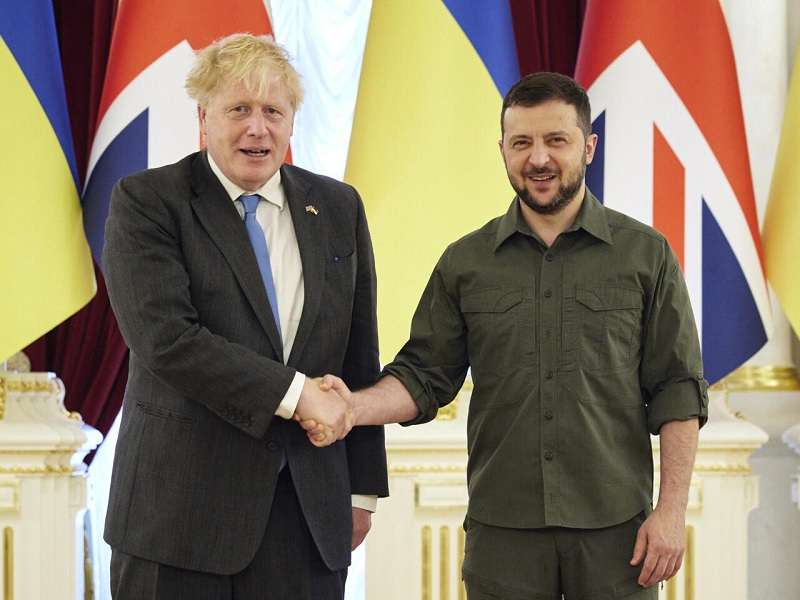Former British Prime Minister Boris Johnson, who shares responsibility with Polish President Andrzej Duda for sabotaging spring 2022’s Russian-Ukrainian peace talks, laid out his envisaged peace plan for Ukraine in an op-ed for The Daily Mail on Friday. He proposes that Trump lift all US restrictions on weapons to Ukraine and their use thereof if he returns to power, after which he takes for granted that Kiev will be able to push Russia back to the pre-special operation boundaries of early 2022.
He then proposes that Russia let Ukraine join the EU and NATO in exchange for Ukraine providing special protections for Russian speakers and the West entering into a rapprochement with Russia that could see its return to the G8 and the resumption of its NATO partnership. Parts of what he proposed are unrealistic while others are “politically incorrect” from the West’s perspective, but the package itself is interesting to analyze as a whole.
The first part about Trump lifting all US restrictions towards Ukraine is based on the plan that he was recently handed where it’s implied that the US might do so if Russia refuses to enter into talks with Ukraine while it would explicitly withhold support from Ukraine if it refuses to enter into talks with Russia. Johnson’s first mistake is assuming that Ukraine would agree but Russia would decline, and then he makes another by assuming that Ukraine would push Russia back to the early 2022 boundaries.
It’s after these sequential intellectual stumbles that he then makes his most interesting proposals. This warmonger flips the script from the past nearly two and a half years by walking back his demands for maximalist victory. Instead of restoring Ukraine’s pre-2014 borders, he’s willing to settle for its early 2022 ones, and he no longer favors the forcible artificial imposition of socio-cultural unity in Ukraine since he now wants special protections for Russian speakers. It’s impressive that he of all people is saying this.
Less impressive though are him clinging to Ukraine’s formal NATO membership, which Russia will never agree to even though Ukraine’s growing network of bilateral “security guarantees” de facto amounts to this, and suggesting that Russia is interested in returning to the G7 and its former NATO partnership. The first part is par for the course though since no Western leader has the courage to call for excluding Ukraine from NATO, while the second are well-intentioned but misguided carrots for Russian compliance.
Nevertheless, the importance of his peace plan rests in the fact that it’s no longer taboo to talk about territorial compromises with Russia and Ukraine protecting the rights of Russian speakers, both of which were driving forces behind this decade-long conflict’s latest phase. This hints that other anti-Russian hawks among the Western elite are realizing the impossibility of Ukraine’s maximalist victory as the military-strategic dynamics continue favoring Russia.
After all, he’s infamous for sabotaging spring 2022’s peace talks (with Duda’s role being much less known and discussed), so it’s likely that there are other comparatively more “moderate” hawks who’ve finally come along to feeling the same way and whose epiphanies might have preceded and influenced his own. The proverbial dam is now beginning to break and it’s possible that other influential figures might soon follow his lead ahead of the US’ upcoming elections that Trump is increasingly expected to win.
